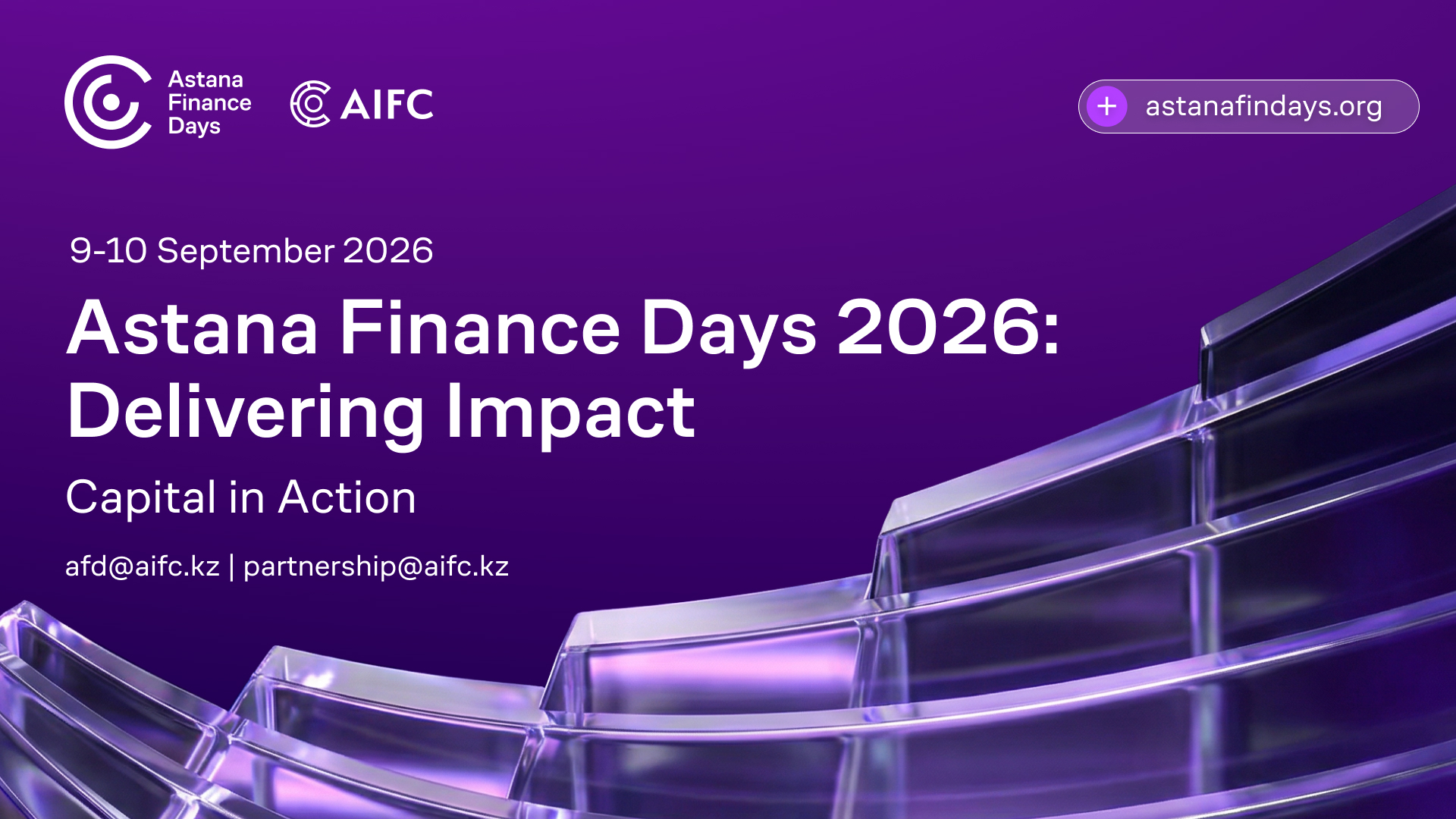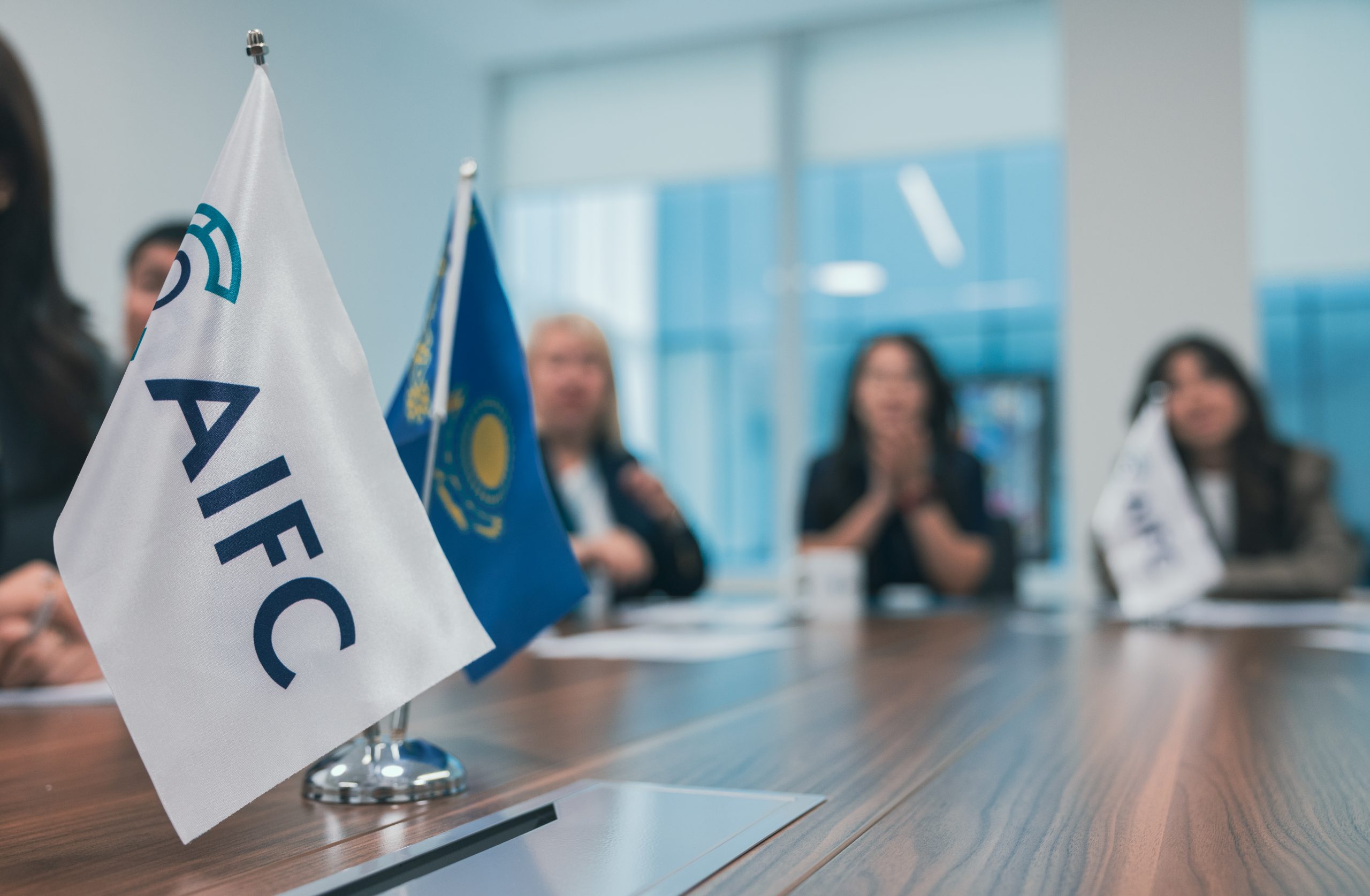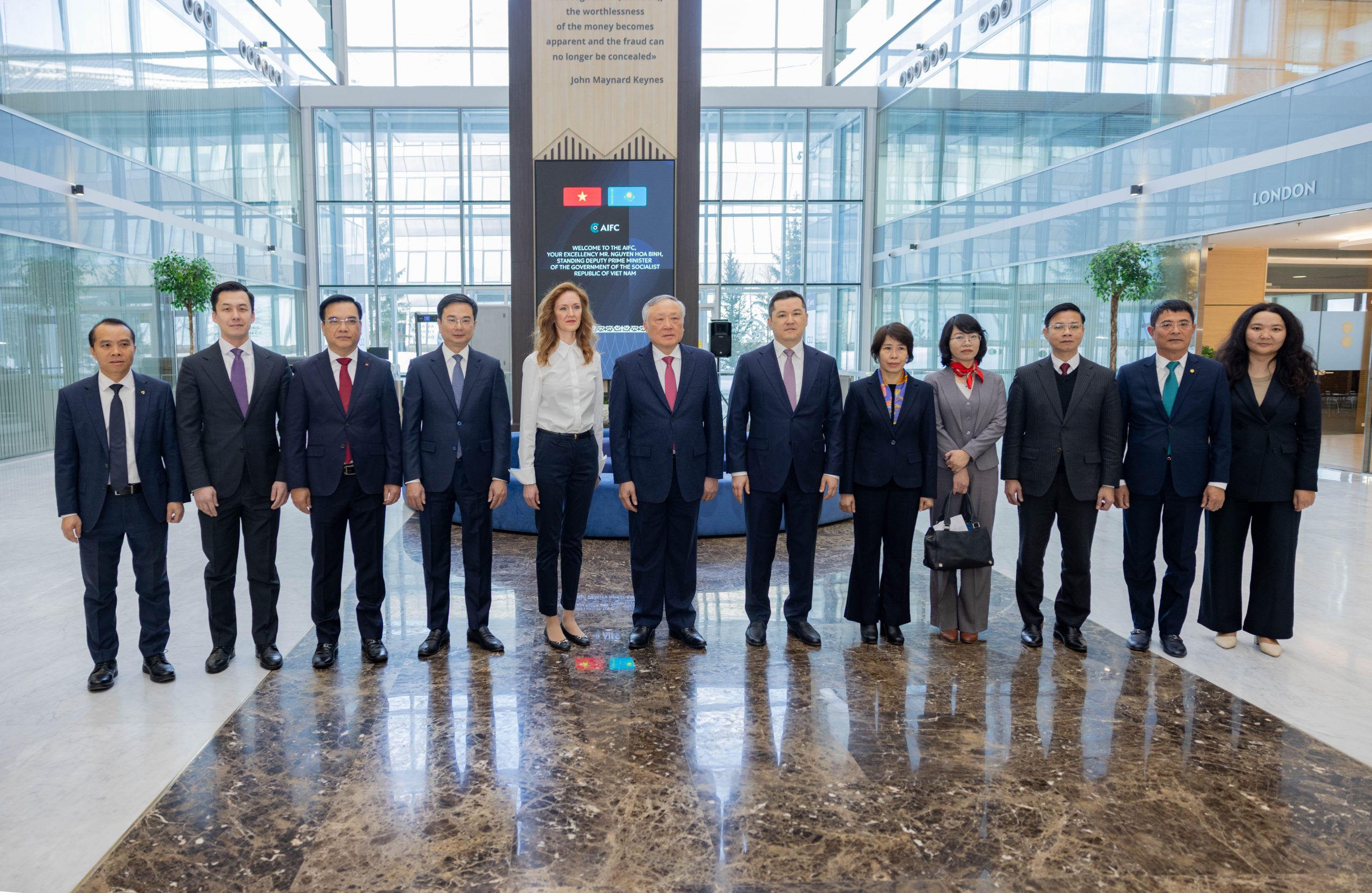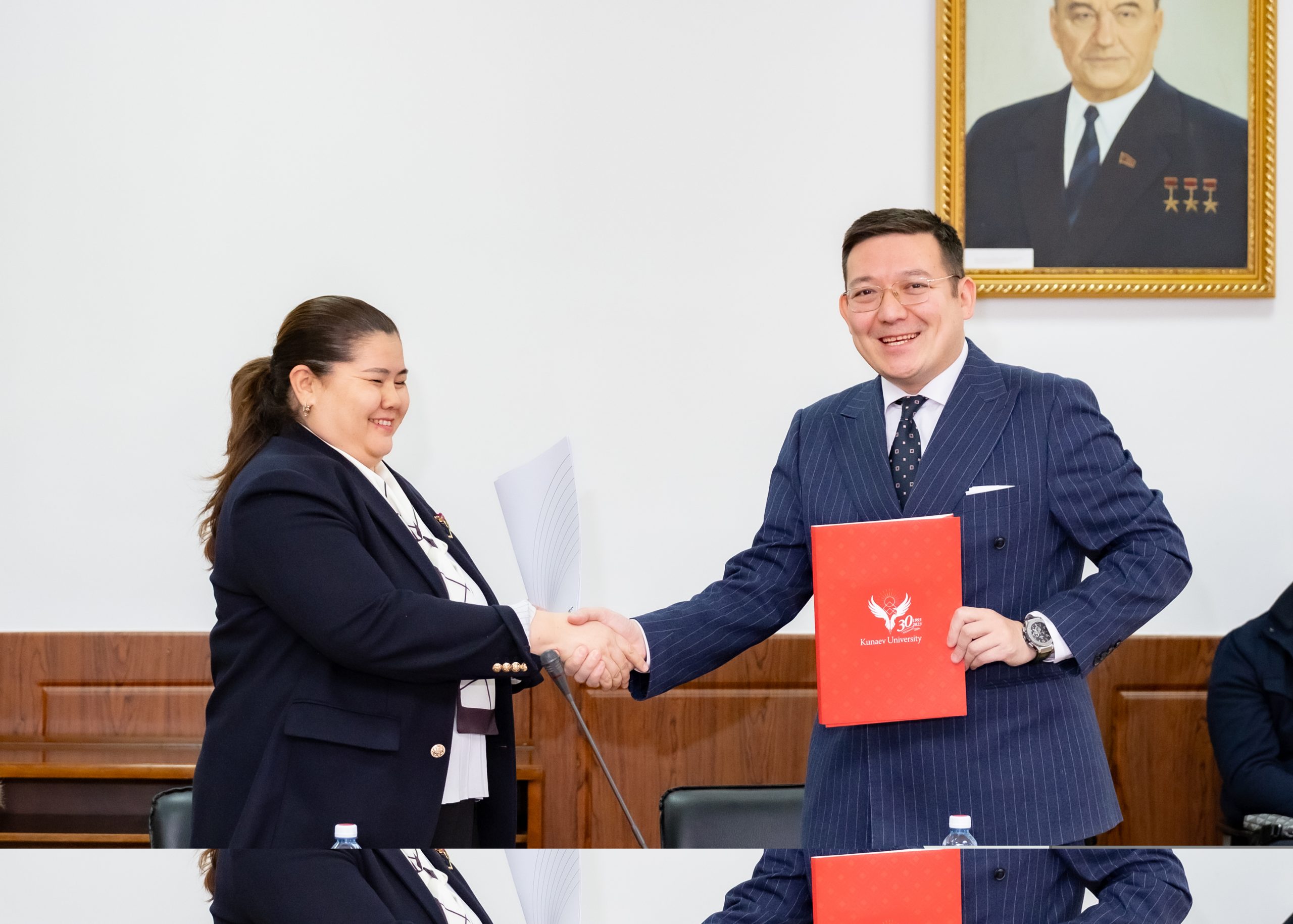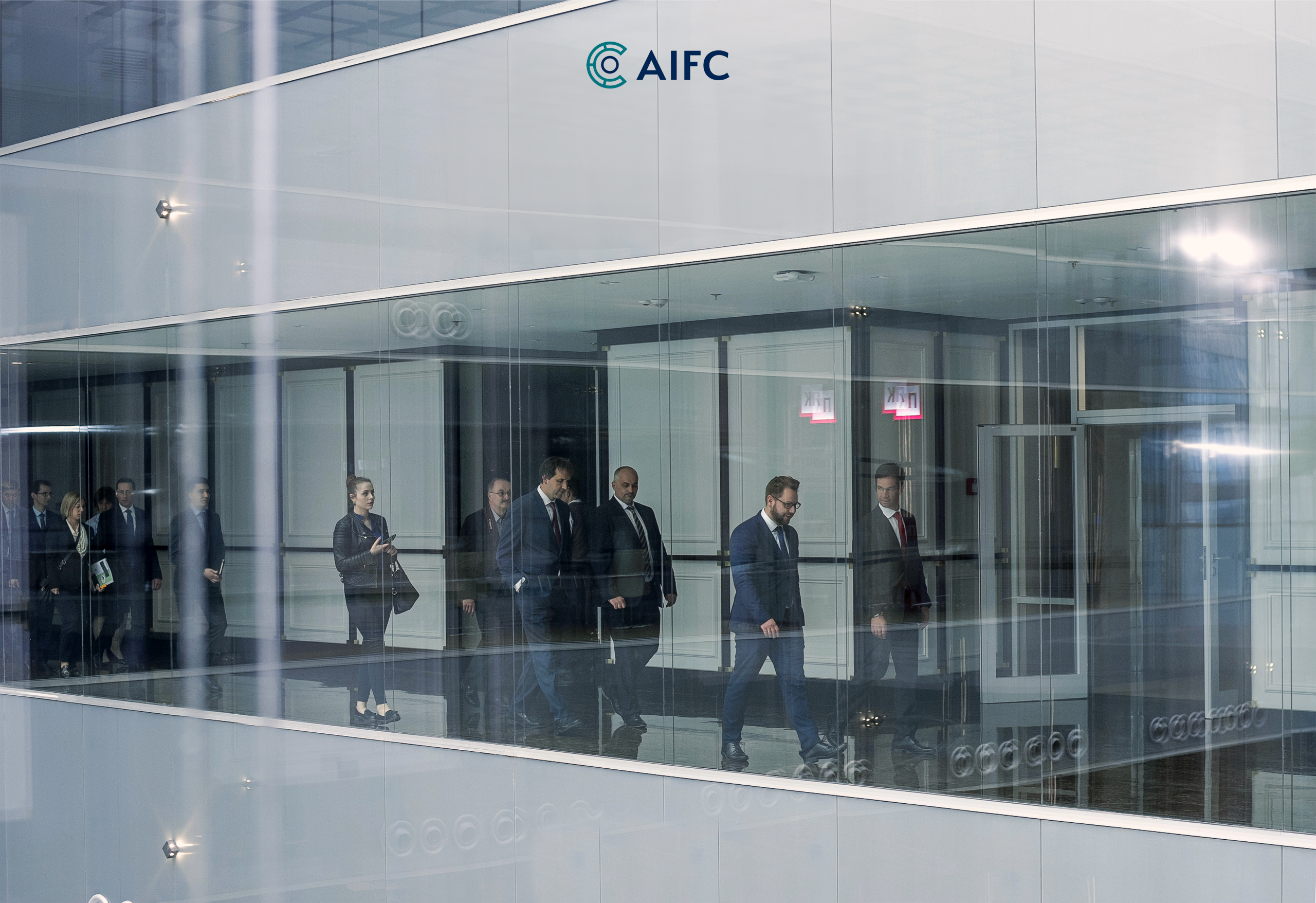Digital Assets and Sustainable Development: Experts Discuss Emerging Trends at AIFC Panel Sessions within the AIF

The Astana International Financial Centre co-hosted two panel sessions at the Astana International Forum, held in Kazakhstan’s capital on 29-30 May. The discussions centred on digital assets and sustainable development finance, convening representatives from government agencies, international organisations, and the private sector to examine the key trends influencing the financial landscape.
Renat Bekturov, Governor of the Astana International Financial Centre, said: “The Astana International Forum has firmly established itself as a high-level platform where heads of state and government, international experts, and business leaders convene to discuss global challenges and prospects for development across politics, economics, and finance. Within the forum, the AIFC organised sessions focused on critical contemporary financial topics – digital assets, which are increasingly embedded in our daily lives and reshaping the economy, and sustainable development financing aimed at achieving targets to reduce humanity’s environmental impact.”
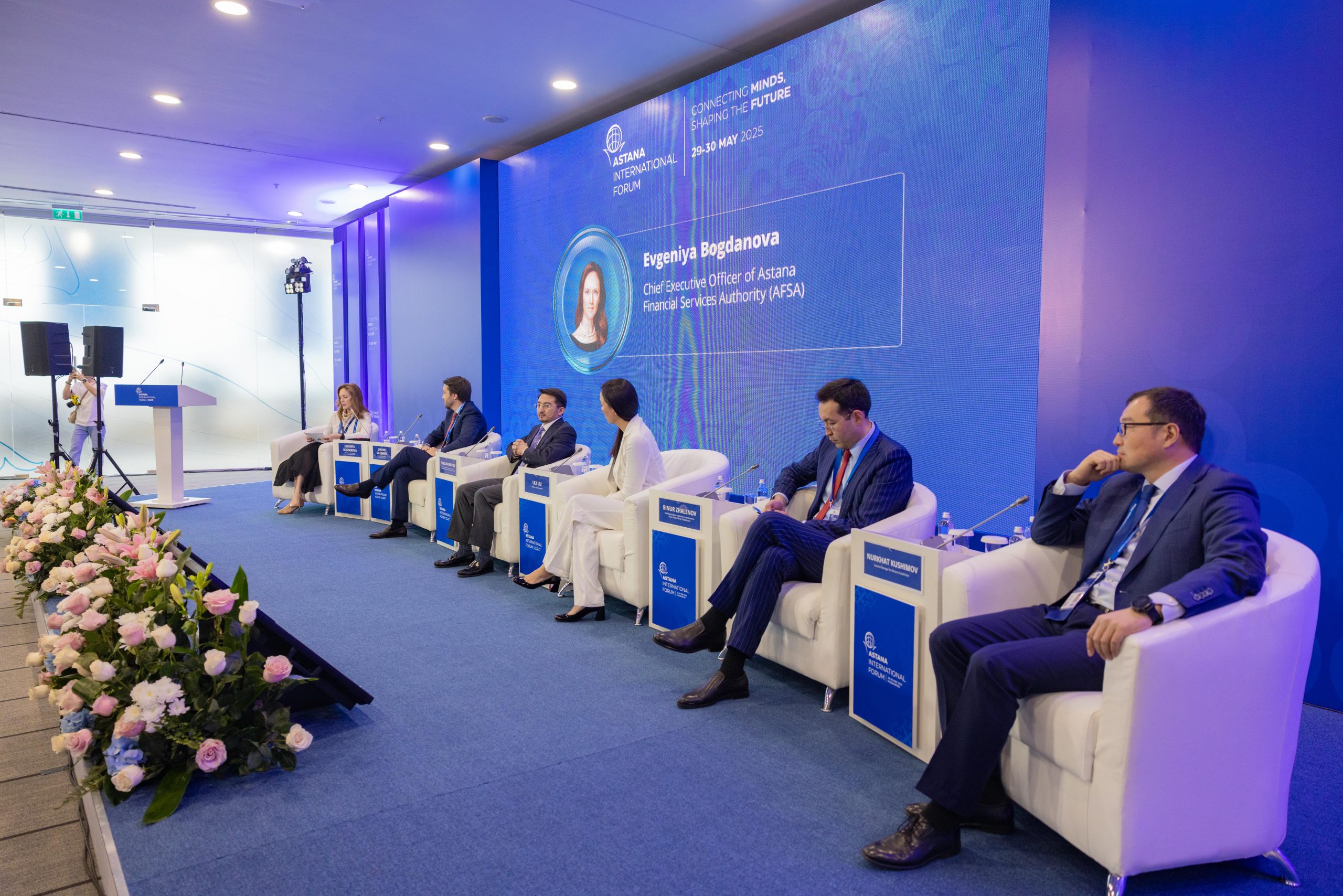
The first session, titled “Digital Asset Revolution: Astana on the Global Map of Digital Finance”, was led by Evgeniya Bogdanova, Chief Executive Officer of the Astana Financial Services Authority (AFSA).
Evgeniya Bogdanova, CEO of AFSA: “ Kazakhstan is taking significant steps to establish itself as a regional leader in the digital assets sector. This journey began in 2019 with the launch of the AIFC FinTech Sandbox and the introduction of an experimental regulatory regime within the AIFC. In 2022, the AIFC, together with national regulators, launched a joint pilot project for crypto-fiat gateways involving 6 cryptocurrency exchanges, 8 banks and almost 50 thousand users – a project that proved highly successful. Today, the AIFC operates as a fully developed ecosystem, home to licensed crypto platforms such as Binance, Bybit, Bitfinex, and other digital asset service providers. In the first quarter of this year alone, total trading volume reached USD 1.7 billion.”
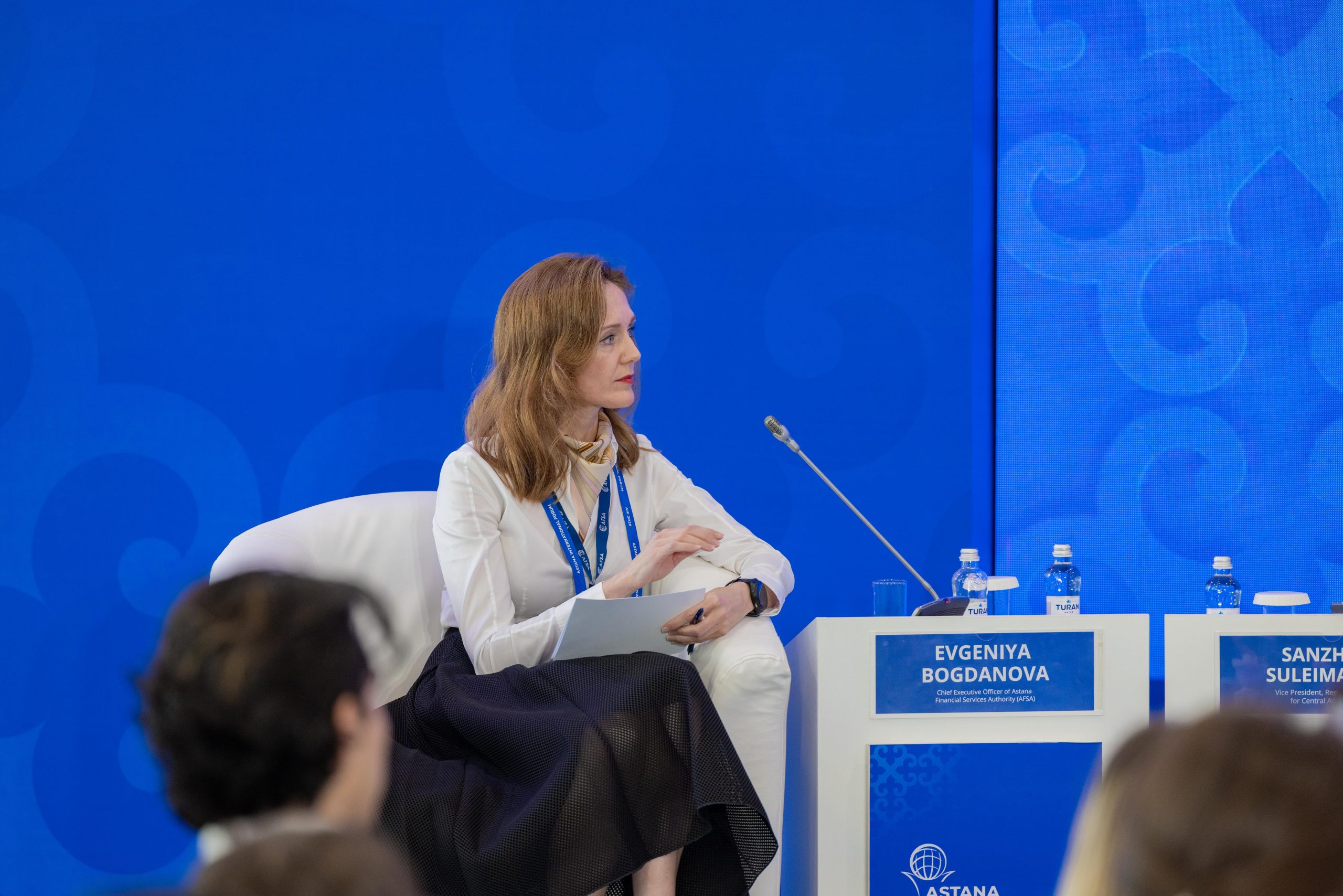
At the session, Zhaslan Madiyev, Minister of Digital Development, Innovations and Aerospace Industry of the Republic of Kazakhstan; Lily Liu, President of the Solana Foundation; Binur Zhalenov, Chief Digital Officer and Advisor to the Governor at the National Bank of Kazakhstan; Nurkhat Kushimov, General Manager of Binance Kazakhstan; and Sanzhar Suleimanov, Vice President and Regional Director for Central Asia at VISA, discussed how digital assets are reshaping the financial landscape.
The rapid adoption of digital assets is already creating not only new opportunities, but also challenges for financial systems and the broader economy. In this context, the speakers explored the evolution of digital currencies – from cryptocurrencies and tokens to central bank digital currencies (CBDCs) – and their potential impact on monetary policy.
The discussion also highlighted Kazakhstan and the AIFC’s unique position within the global digital asset regulatory landscape, the potential of blockchain-based services to streamline cross-border payments and settlements, the implications of central bank digital currencies (CBDCs) for traditional monetary policy and the role of central banks, as well as the growing popularity of digital assets as investment instruments both in Kazakhstan and globally.
Nurkhat Kushimov, General Manager, Binance Kazakhstan: “We chose the AIFC as our jurisdiction because Kazakhstan is a strategically important market for Binance. It is especially valuable when a jurisdiction offers transparent, adequate, and well-balanced regulation. Moreover, as a company, we see it as our responsibility to operate in such environments – to share technology, invest in infrastructure and human capital, and support the development of local teams”.
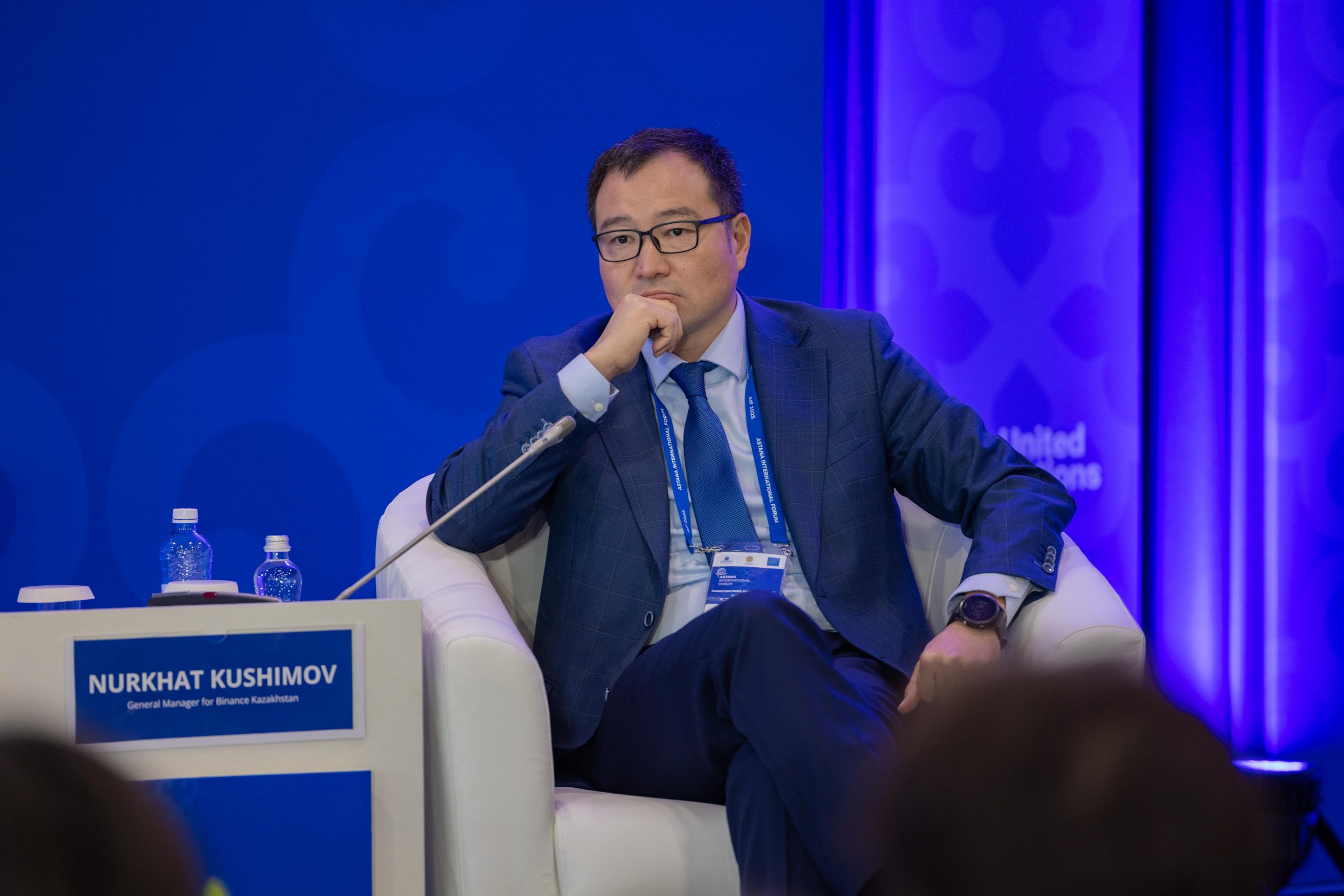
Lily Liu, President of the Solana Foundation, said: “As an industry, the crypto sector must continue investing in talent development and capital formation. These have always been the foundational elements in building an ecosystem like Solana – consistently attracting developers and builders, and providing them with the necessary resources and expertise. (…) We are particularly committed to this in Kazakhstan, as the country stands out as one of the leading talent ecosystems in the region”.
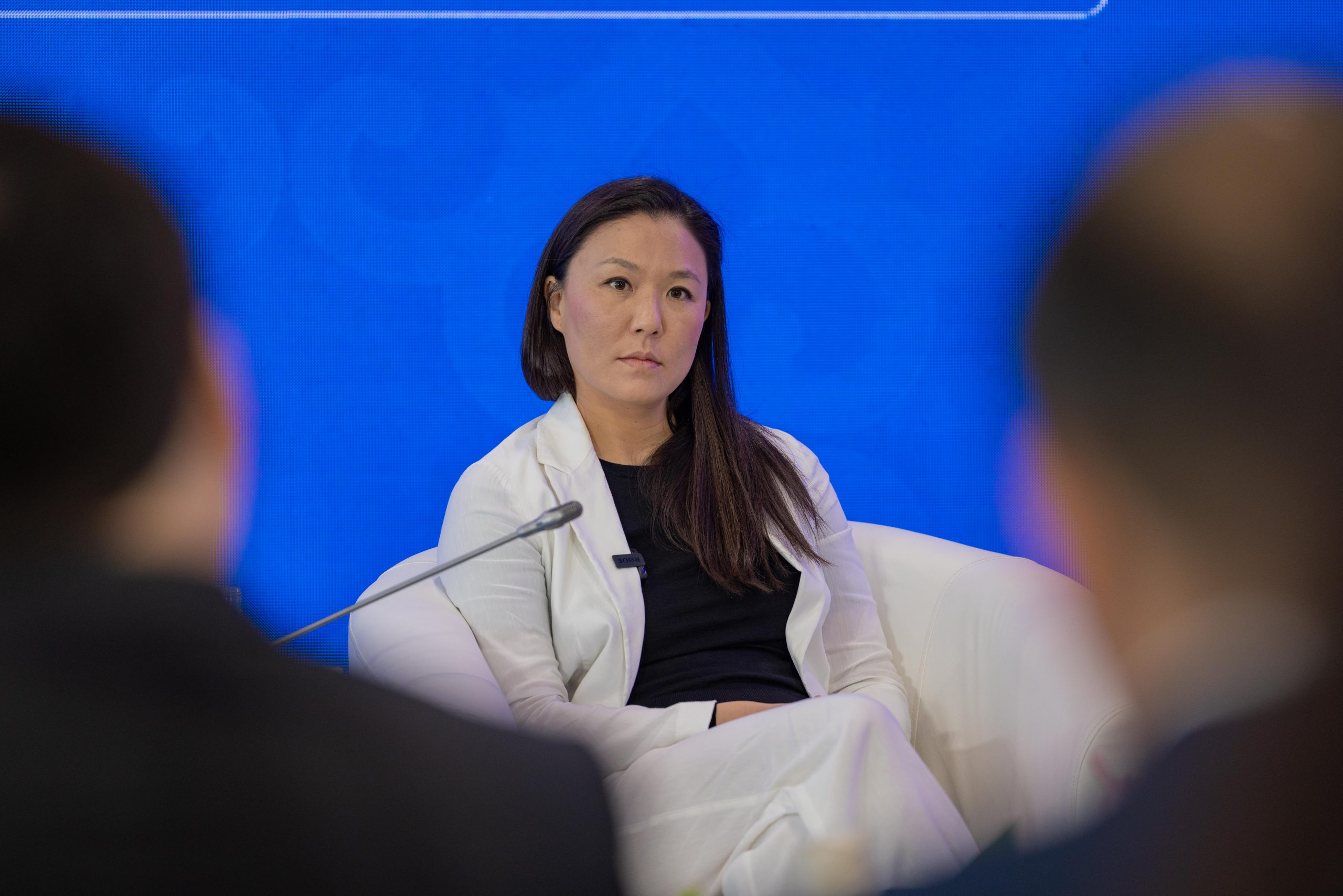
The second session organised by the AIFC centred on sovereign green bonds, recognised as an important tool for mobilising capital towards environmental and climate initiatives.
The session “Sovereign Green Bonds: Unlocking Financing for the National Sustainability Agenda” was moderated by Bakytzhan Karagoishin, Managing Director of Freedom Bank Kazakhstan. The panel featured Manas Gizhduaniyev, CEO of the AIFC Green Finance Centre; Sukhrob Khojimatov, Deputy Resident Representative of UNDP in Kazakhstan; Birzhan Astayev, Chief Markets and Products Officer at AIX; Ekaterina Komova-Benjamin, Country Officer for Kazakhstan at the International Finance Corporation (IFC); and Askar Namazbayev, Associate Director and Deputy Head for Kazakhstan at the EBRD.
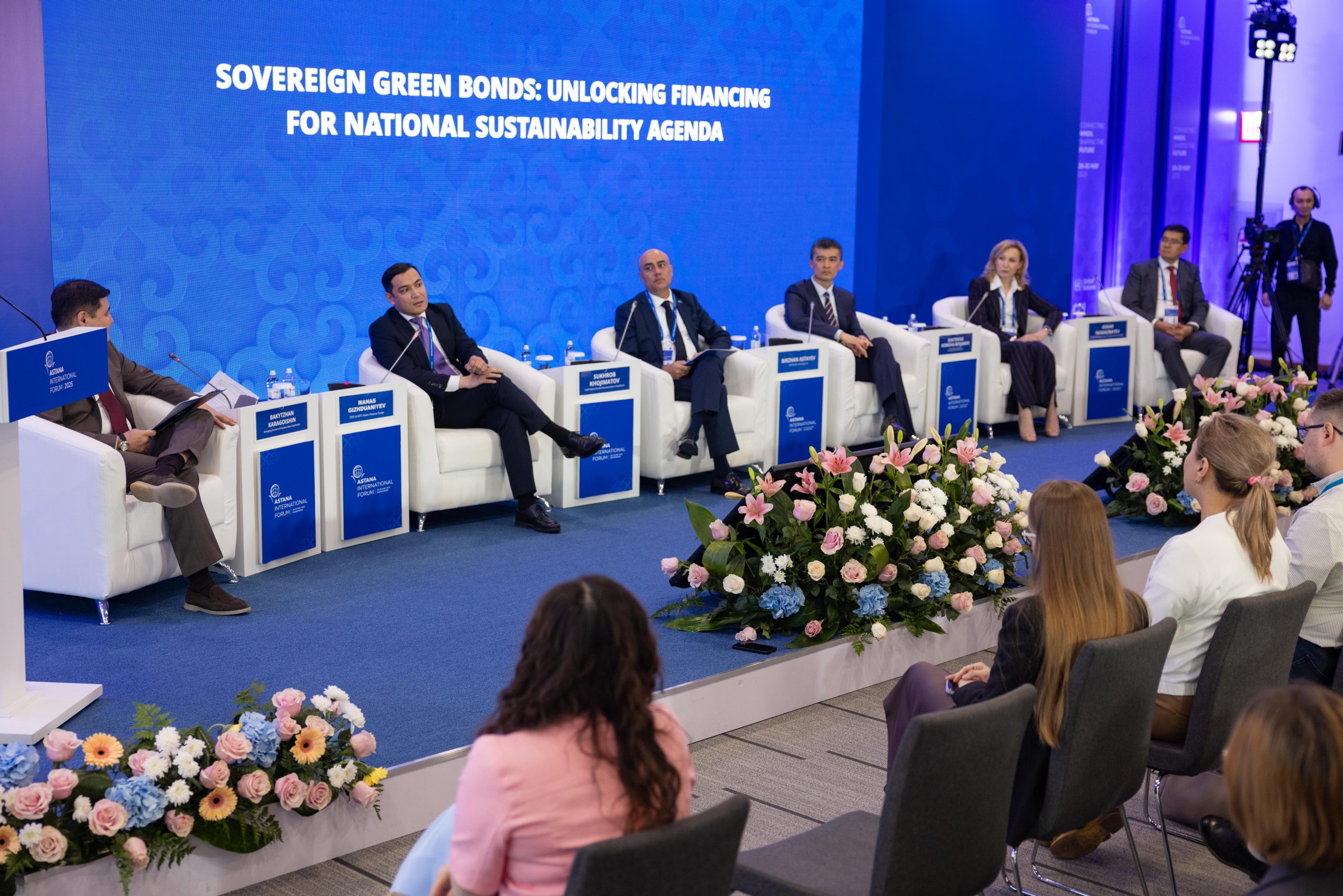
According to the Climate Bonds Initiative, by the end of the third quarter of 2024, a total of 554 bonds – including green, social, and sustainability bonds – had been issued worldwide by 58 countries, amounting to USD 630.5 billion.
The issuance of such securities is gaining momentum worldwide, and the countries of Central Asia should not be left behind in this trend. Utilising these instruments enables more effective achievement of national development goals.
Manas Gizhduaniyev, CEO of AIFC Green Finance Centre: “Kazakhstan’s sustainable finance market has currently reached USD 1.7 billion, of which USD 600 million is attributed specifically to green bonds. I’m pleased to report that 70% of the green bond segment has been verified by our team at the AIFC Green Finance Centre. It is important to note, however, that to date all issuances have come from the corporate sector and multilateral development banks; Kazakhstan has yet to see any municipal bonds. This represents a significant opportunity, and the Green Finance Centre is actively working with subnational public entities to support their entry into the sustainable finance market. A notable example is the Social Entrepreneurial Corporation Aktobe, a subsidiary of the Akimat of Aktobe region, which is planning to issue Kazakhstan’s first social bonds linked to regional development goals.”
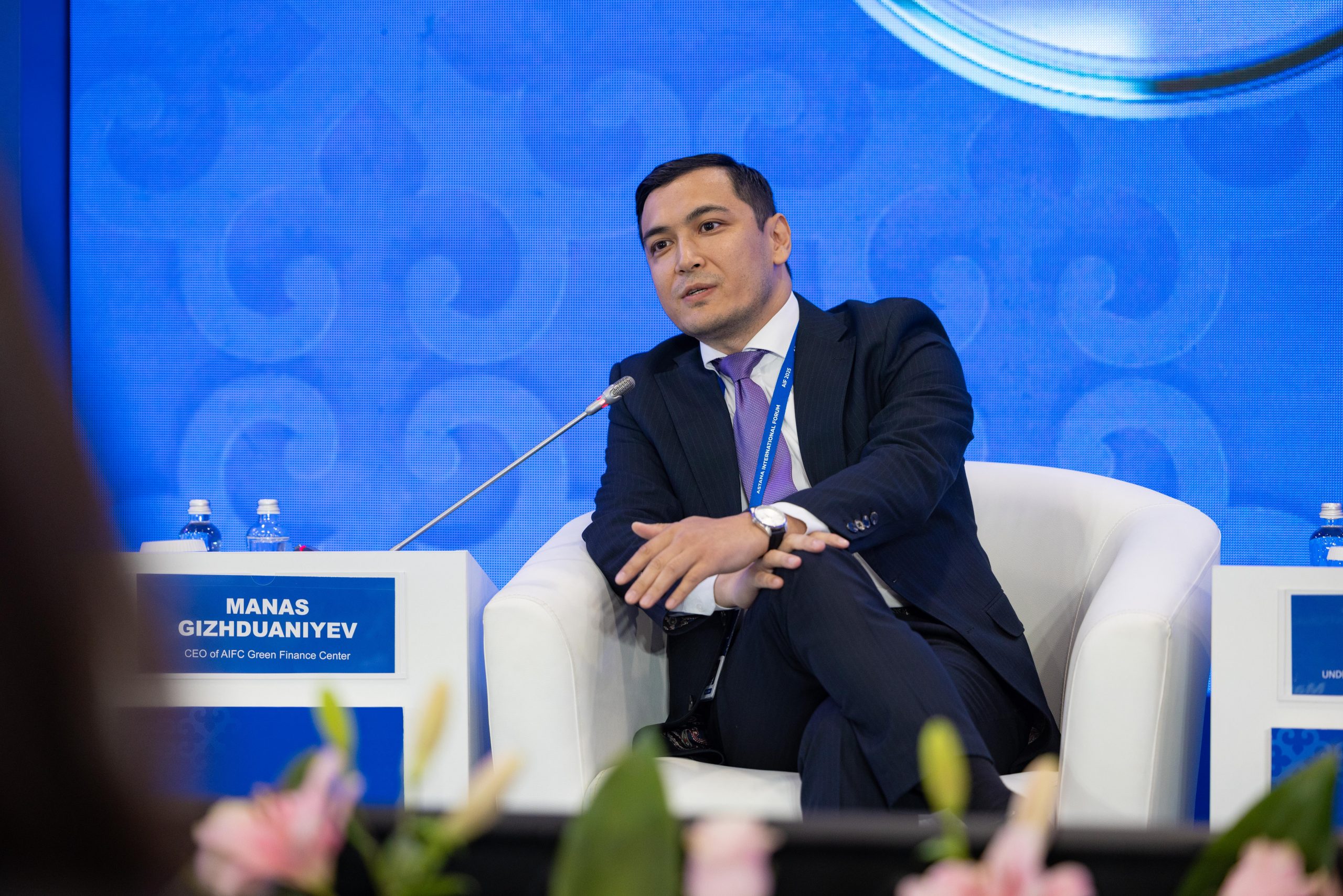
Birzhan Astayev, Chief Markets and Products Officer at AIX:“When it comes to sovereign green eurobonds that the Ministry of Finance might issue, there have been no precedents in Kazakhstan to date. However, I am optimistic that we will see this in the future. Why is this important? Beyond directing funds to environmental projects and improving quality of life, I would also emphasise the financial benefits. There are dedicated reserves – funds exclusively allocated for investment in green projects – managed by many international investors. If the Ministry of Finance issues green bonds, these resources would be unlocked, boosting demand for issuance and offering favourable placement opportunities for the issuer. This, in turn, would bring a direct financial advantage to the country.”
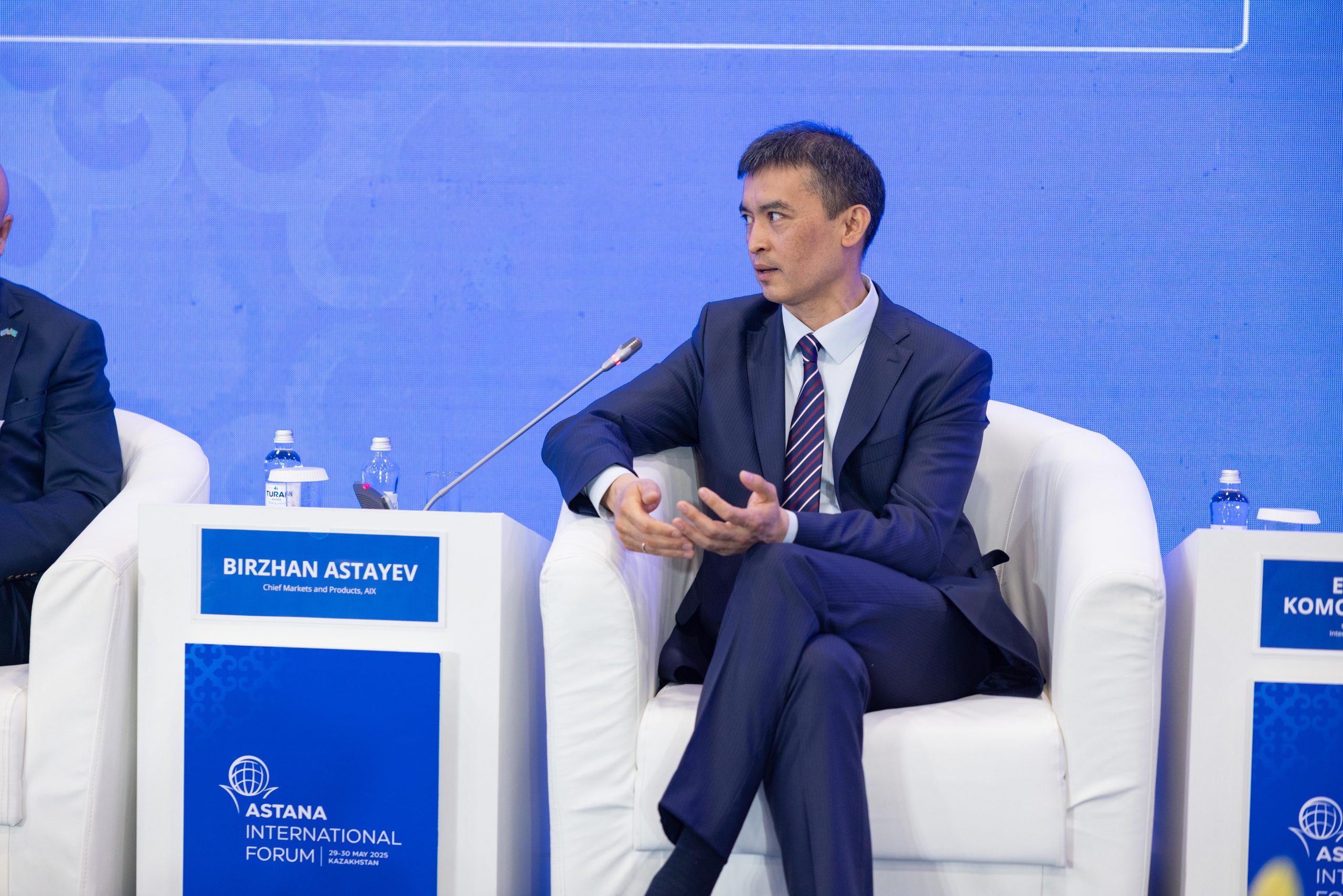
Experts at the session highlighted that the issuance of green bonds by government bodies signals their commitment to low-carbon development and provides an opportunity to attract capital for green projects on more favourable terms from investors. Investors are increasingly prioritising sustainable development, favouring such projects over investments in traditional economic sectors.
Participants in the session also discussed the main barriers hindering the issuance of sovereign green bonds, shared success stories and best practices in the sector, and examined the support provided by development banks and international financial organisations for green bond issuance.
Background Information:
The Astana International Financial Centre (AIFC) is a leading financial hub in the Eastern Europe and Central Asia region, designed to connect global capital with the vast opportunities of emerging markets. Positioned at the crossroads of Europe and Asia, the AIFC combines international best practices with innovative approaches to create a world-class platform for investment, business, and financial services. Since its establishment in 2018, the AIFC has attracted over USD 14.8 bln in investments into Kazakhstan’s economy. Over 3,900 companies from 80+ countries, including the USA, the UK, China, Hong Kong, Turkiye, the Republic of Korea, Singapore, and others, are registered within the AIFC’s jurisdiction. www.aifc.kz
